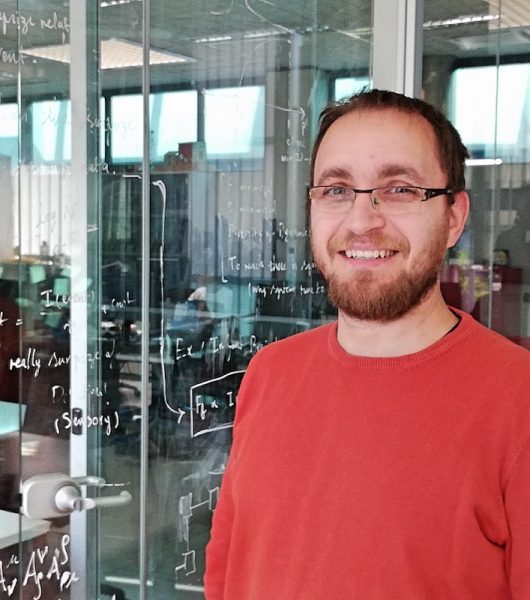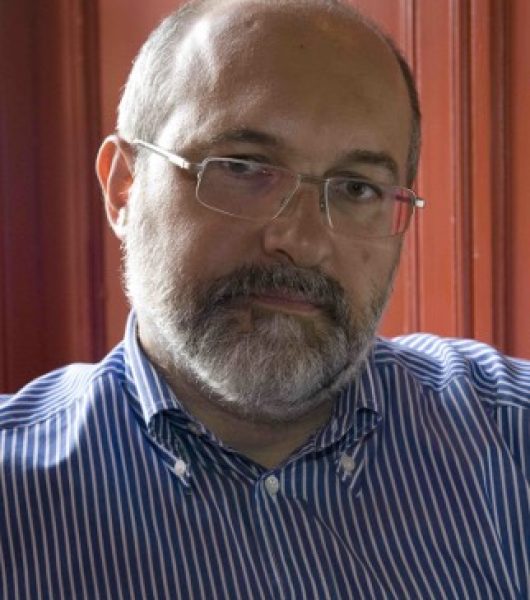FBK PARTNERS WITH WHO ON NEW INITIATIVE TO MONITOR COVID-19 INFODEMICS FROM AROUND THE WORLD
FBK team of researchers led by Manlio De Domenico will develop a computational platform for interactive monitoring and visualization of COVID-19 infodemic on social media and a report on the global state of COVID-19 infodemic.
During the current pandemic crisis, it has become clear that the socio-behavioral dimension can be as important as the medical-public health one in controlling the diffusion of the disease and in mitigating its social costs in terms of human lives and resources. Our societies are however ill-equipped to tackle this challenge, and especially so in a digital, hyper-connected world where human behaviors are rapidly affected by informations and opinions that propagate across the social media and more generally through digital channels. The pandemic crisis is therefore accompanied by a parallel, and complementary, infodemic crisis, that causes the un-controlled propagation of misleading or false information which negatively affects social behaviors and may have dangerous consequences both in terms of health safety and of effectiveness of public health policy measures. We therefore need to develop for infodemics an analogous level of scientific expertise and policy articulation than the one harnessed so far for the pandemics.
Thanks to the new partnership between WHO and FBK, the Complex Multilayer Networks (CoMuNe) Lab – FBK’s research unit for the modeling and analysis of complex systems – will make a concrete step in this direction, that builds on the recently launched Infodemic Observatory at Bruno Kessler Foundation, a resource that provides some initial basis to study the infodemic side of the pandemic crisis, to assess infodemic risk levels for different countries, and to design adequate countervailing and mitigation policies. On this basis, the partnership will develop a full-fledged toolkit and a repertoire of best practices to enable policy makers around the world to tackle the COVID-19 infodemic crisis and to be prepared for future, possible crises.
The team of FBK researchers led by Dr. Manlio De Domenico (Head of CoMuNe Lab at FBK) is developing a big-data platform for real-time monitoring of misinformation and disinformation spreading around the world.
“Information travels faster than the COVID-19’s virus, but their evolution is geographically entangled: both are a threat for public health”, said De Domenico. The processed data is used for infodemiology, to better understand the mechanisms leading to COVID-19 infodemic. The output is used by Prof. Pier Luigi Sacco (research associate at FBK; Faculty Associate at the Berkman-Center of Internet & Society, Harvard University, Head of the Venice Office of the OECD and Professor at IULM University, Milan) to analyze the socio-behavioral mechanisms at work behind the creation, propagation and amplification of misleading and fake news and to design countervailing and mitigation strategies accordingly.
“Quantifying infodemic risk is relevant for decision-making and to develop tailored policies to reduce and mitigate threats for public health”.
The initiative, “COVID-19 Infodemic Observatory” will be a six-month long collaboration, will develop a computational platform for interactive monitoring and visualization of COVID-19 infodemic on social media and a report on the global state of COVID-19 infodemic. The collaboration is the first WHO-funded project at FBK, providing the ground to transform FBK in a WHO Collaborating Center for Infodemic.
“This project will empower the WHO and its Member States with a computational tool that allows to monitor worldwide infodemic through the lens of complexity science” said De Domenico. “It is a unique opportunity to dig into a digital phenomenon that is not only relevant for the COVID-19 pandemic, but expected to become more frequent in the future”, adds Sacco.
This new project capitalizes on CoMuNe Lab’s existing project, the COVID-19 Infodemic Observatory, which was launched in March 2020 and has been developed within the Computational Human Behavior project co-directed by De Domenico and Sacco. The platform is designed to monitor the current state of infodemic worldwide at large-scale, featuring a dashboard for the emotional and psychological analysis of content and the detection of software-assisted accounts (e.g., social bots) based on network science and artificial intelligence techniques.
Specifically about infodemic topic a study in collaboration with WHO and other organizations has been published on international Journal JMIR: https://www.jmir.org/2020/6/e19659/
About the CoMuNe Lab
The CoMuNe Lab is an interdisciplinary research and computational laboratory at Fondazione Bruno Kessler’s Digital Society department. The lab studies complex systems, like our society, analyzing emerging collective phenomena in socio-technical networks and their impact on society. The lab’s research aims at better characterizing the raise of infodemics during exceptional events like COVID-19 pandemic, quantifying the spatio-temporal evolution of its risk for countries exposed to over-abundance of online mis- and disinformation.
About WHO: https://www.who.int/
Covid Infodemics Observatory: https://covid19obs.fbk.eu/#/
For press inquiries, please contact:
Manlio De Domenico
Head of the Complex Multilayer Networks Lab
+39 0461 314 544
The researchers are available for media interviews to discuss topics about this project and the efforts to fight COVID-19 misinformation.


